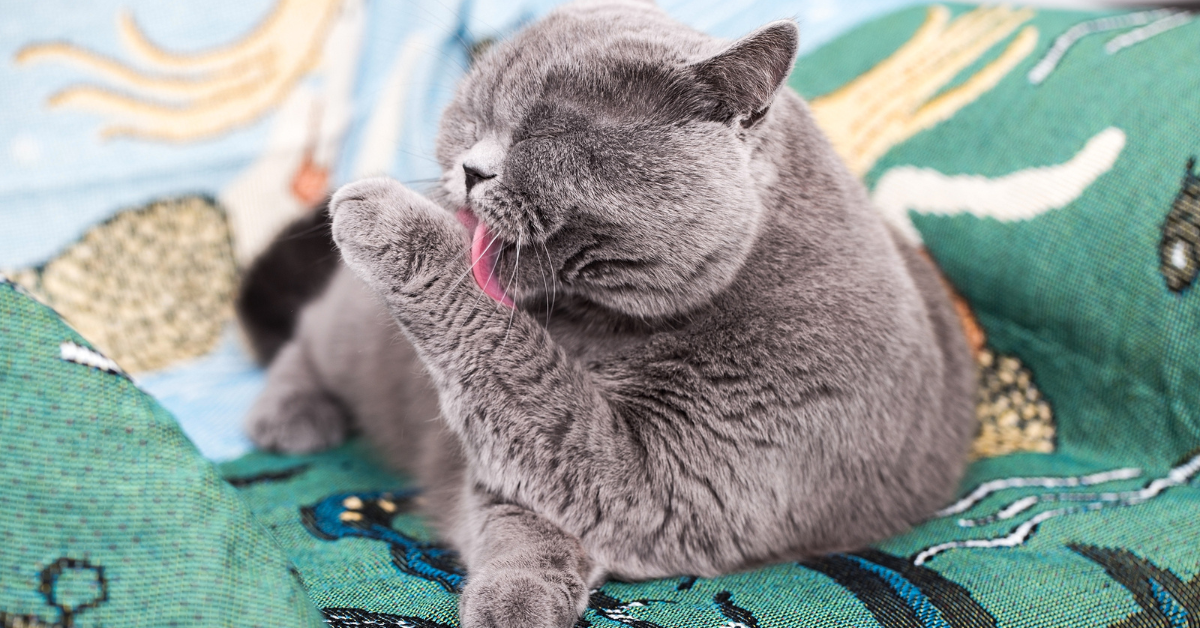Where Did You Go?!

Where Did You Go!?
It's great to know that your pet loves being around you. It's part of why you adopted him in the first place. Like any relationship, however, there are times when that attachment can go a step too far. When your pet acts out whenever he is left alone, it can damage both your house and your relationship. Here is how you can help your pet become a strong, independent member of your family.
WHAT IS SEPARATION ANXIETY?
Simply put, separation anxiety is when your pet acts out when he is left alone. There are different ways he can communicate that he is freaking out. He may dig or scratch at doors or windows in order to get back to you. He may partake in destructive chewing on your furniture, shoes or clothes, or your home itself. He may start howling, barking, whining or meowing nonstop, disturbing everyone within earshot. He may even start going to the bathroom all over the place when he is otherwise potty trained.
These symptoms alone are not signs of separation anxiety. In order to determine if your furry little friend is anxious about being alone, you should look for these additional signs.
- Does his destructive behavior occur only when he is alone, and shortly after you leave?
- Does this behavior happen, no matter how long you're gone?
- When you get home, does he behave frantically, running around, unable to calm down?
- When you get home, does he follow you from room to room, attached to your hip?
- Does your pet start getting anxious when you're about to leave, like when you grab your keys or put on your shoes or coat?
Bad behavior in these situations is a pretty clear sign of separation anxiety.
WHAT CAUSES SEPARATION ANXIETY?
Separation anxiety is very common in rescue animals. This makes sense, considering that separation anxiety can be a manifestation of abandonment issues. Animals that have spent time in a shelter have often suffered some sort of abandonment, either getting separated from their family or being turned over by a previous owner. Other causes for separation anxiety could be a sudden change in your pet's schedule, like you working longer or different hours. It may be caused by the loss of a family member, like a kid going off to college, divorce, or death. It could be something like a move or being left alone for the first time. While we may not know exactly what causes your dog or cat's separation anxiety, the good news is that it can be treated.
BEING OK BEING ALONE
Changing your pet's negative behavior takes time and patience. Dogs can be very stubborn, and cats rarely listen to reason. To help your pet overcome his separation anxiety, you will have to change the way he views being by himself.
MINOR SEPARATION ANXIETY
If your dog or cat only has a mild case of separation anxiety, you simply have to recondition him not to become overly stressed when he is left alone. You have to get him to associate being alone with being relaxed and happy. The first thing to do is not make a big deal out of coming and going. When you leave, don't make a big production about how much you are going to miss your pet and make a long, tearful goodbye. When you get home, don't act like you haven't seen your animal in three and a half weeks. Simply walk out the door, and when you get home, go about your business, ignoring your pet for a few minutes before you calmly greet him. What this communicates to your pet is that you're being gone is no big deal. Pets are very perceptive when it comes to these types of cues.
When you are gone, leave your pet some things that make him happy. A T-shirt that smells like you will help comfort your animal while you are away. Whenever you leave, make sure to give your furry friend some treats or food. Putting treats inside a puzzle toy is a great way to keep him occupied while you are away. After a while, your pet will associate you're leaving with getting treats. He may start to even look forward to you leaving.
MODERATE TO SEVERE SEPARATION ANXIETY
If you tried the steps listed above, and your dog or cat is still acting out every time you leave the room, he may be suffering from a more severe case of separation anxiety. Getting him over his separation anxiety will need to be dealt with slowly and gradually. You will need to desensitize your pet to the trauma of being left alone. A simple way to begin the process is by changing your routine to lessen your pet's pre-departure anxiety. Do things like grab your keys and then sit and watch TV. Put on your coat, grab your bag and walk around the house for a bit. Mixing up your routine will make your pet not associate these actions with being left alone, making leaving that much easier.
When you are ready to start getting your pet used to the idea of being alone, you will want to start slowly and work your way up. You can start with out-of-sight stay exercises. Have your pet sit or lie down and stay while you go out of sight. Slowly build the length of time you can be out of sight. Then, start to leave the home for short periods of time. The key is to keep the time away from home shorter than the time it takes for your pet to start acting out. Start with a minute or two, adding a few seconds each time. Try this a few times a day over several weeks. Once you are up to 40 minutes, you can start increasing your time away by greater chunks, up to about 15 minutes at a time. Once you are up to 90 minutes away, your pet should be able to handle an extended period. Try four hours at first, and see how he handles it. If that is successful, you can work your way up to a full eight-hour day.
Finally, if none of this has worked, it may be time to speak to a veterinarian, trainer, or behaviorist about other options to help alleviate the anxiety and stress.
TREATING BODY AND MIND
While you are in the process of getting your dog or cat used to the idea of being alone, there are other things you can do to ease his nervousness. Stimulating his body and mind will help him be relaxed when dealing with being left alone. Before he is left alone, make sure he has had plenty of exercises, like swimming or running (probably not swimming for cats). Tired pets rarely have nervous energy. Taking your dog for walks every day will also lessen his anxiety. Make sure to vary the route and length, so that he gets a variety of new sights and smells. Playing interactive games with your pets, like fetch, tug-of-war, or using interactive cat toys, stimulates your pet both mentally and physically. Puzzle toys, where your pet must figure out how to find a treat, are mentally rewarding and something he will enjoy. In fact, hiding bits of food around the house while you are away let your pet use his natural instincts to hunt for his food. Getting back to his roots will allow your pet to occupy himself while you are not home. He may not even notice you're gone.
WHAT NOT TO DO
There are a few things you shouldn't do when trying to help your pet overcome separation anxiety. First of all, don't punish your pet. It will only strengthen the negative association he has with you leaving. Imagine the thing you are scared of. Now imagine someone yelling at you every time you act scared of heights, snakes or public speaking. Pretty counterproductive. Some people try to get another animal to lessen their pet's anxiety. That doesn't really solve the problem of the dog being stressed and anxious at the absence of his owner, and you may have just given him a partner in crime in his destructive behavior. Leaving a TV or the radio on is something else pet owners have tried with mixed success. Crating your pet, without proper crate training, is also counterproductive. And simple obedience training will not solve the problem. Separation anxiety is not an obedience issue; it is a psychological one. Dealing with it from that standpoint is the only way to ensure success.
You love your pet, and your pet loves you, but being able to lead separate lives is important to the longevity of your relationship together. When your pet is anxious, you'll be anxious. Make sure your pet is happy while you're away, and you'll both be happier when you're together.
Sources:
- Separation Anxiety. ASPCA. Web. 09 March 2015.
- Separation Anxiety. The Humane Society of the United States, 6 Dec. 2014. Web. 12 March 2015.
- Johnson-Bennett, Pam. ?Separation Anxiety in Cats. Cat Behavior Associates. Web. 11 March 2015.
Previous article

Next article

Related posts
View all-

5 Simple Tips to Make Sure Your Cat Drinks Enough Water
Ensuring your cat stays hydrated is important, but it can be challenging since many cats don't drink enough water. Dehydration can lead to kidney disease and other health issues. Fortunately, you can encourage your cat to drink more with a few simple changes. Read Article -

How to Keep Your Cat Busy at Night (So You Can Sleep)
For many cat owners, the quest for a good night's sleep while keeping their feline friends content and engaged can seem like a never-ending battle. Cats, naturally more active at night or early in the morning, often disrupt your sleep schedules with nocturnal activity, whether through playful nature or seeking attention. Read Article -

Should You Bathe Your Cat? Everything You Need to Know About Cat Hygiene
When it comes to cat hygiene, a common question among cat owners is, "Should you bathe your cat?" Understanding how to care for felines, especially bathing cats properly, is crucial for maintaining their overall health. Most cats are fastidious groomers, but specific scenarios like long-haired cats getting dirty or skin irritations, might require a bath.
Read Article



